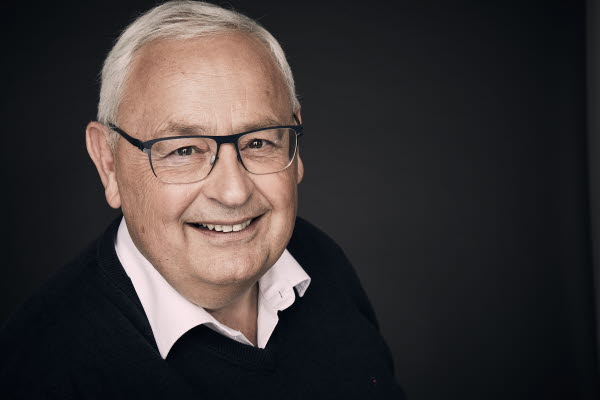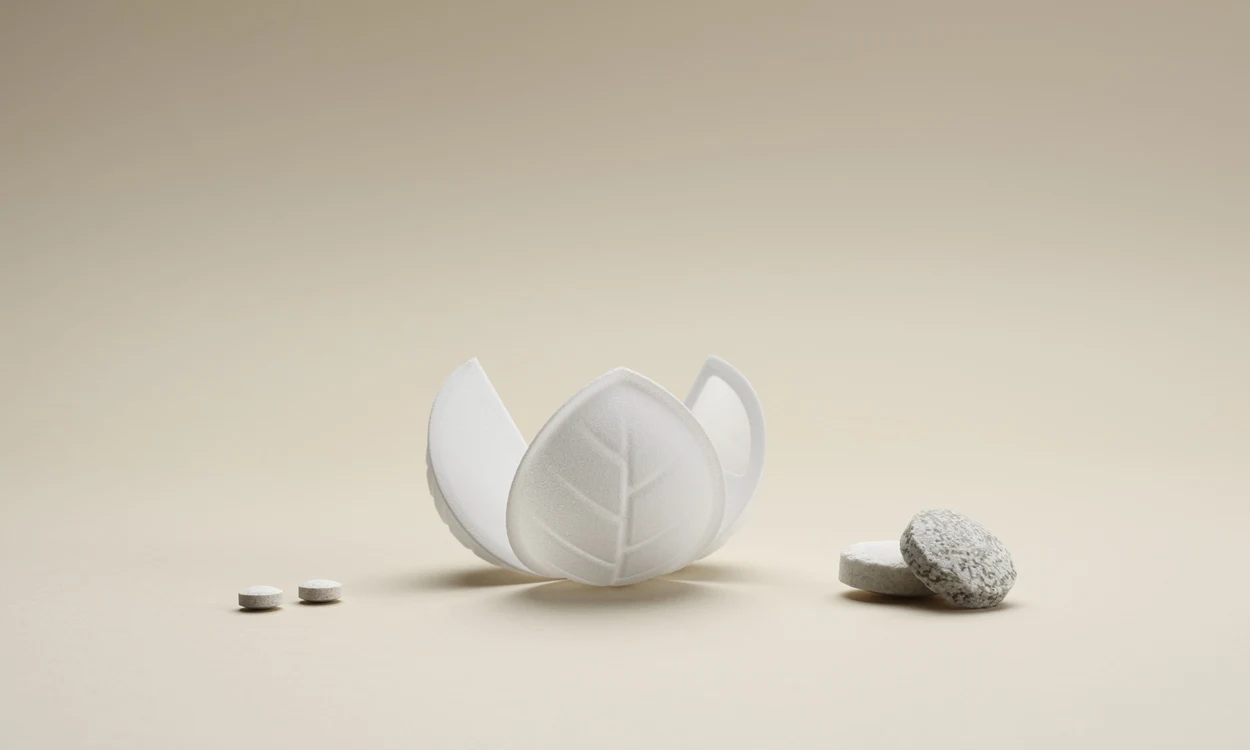In a circular economy, it is our shared obligation to eliminate packaging waste through design, giving consumers more sustainable options to choose from. The Trific project is a collaboration between four companies: Holmen Iggesund, Yangi®, Optima Packaging Group and FutureLab & Partners. The project aims to speed up the introduction of new sustainable premium packaging solutions for the health, body and beauty industry. Its approach shows how companies and brands can explore solutions together to quickly deliver alternatives to their existing rigid plastic packaging.
By developing a bio-based concept, the collaboration has explored circular design, materials, dry forming technology and end-of-line barrier solutions. The end result is a circular packaging solution, where nothing is wasted, which embodies three elements of modern travel packaging: renewable materials, low-energy manufacturing and user experience.
The prototype, which was developed within six months, is a unique 48-hour travel kit for people who travel responsibly and well. It contains three dry products: hand soap, body soap and toothpaste, that simply dissolve after use. The package itself and the sleeve are made from 100% biodegradable and renewable solutions.
“It all sounds so simple, but providing dry cosmetics in a travel kit made from renewable materials has never been done before,” says Hein van den Reek, Director Future Packaging, Holmen Iggesund. “And it has only been achieved now through collaboration. There’s a real sense of urgency to making packaging ever more sustainable and purposeful, and at Holmen Iggesund we see the benefits of working with others to solve challenges faster.”

Hein van den Reek, Director Future Packaging, Holmen Iggesund.
Holmen Iggesund provided the renewable wood-based raw materials that the Trific concept is made from. As part of the forest industry group Holmen, Holmen Iggesund has access to over 1.3 million hectares of forest in Sweden.
“We use residues from the wood grown in forests to make climate-smart pulp and paperboard, the basis for the Trific packaging,” says van den Reek. “By combining the right material with purposeful collaborations with our partners, we want to showcase how a real difference can be made in the near future.”
The next stage in developing Trific was undertaken by Yangi®, another Swedish based company. They transformed Holmen Iggesund’s natural wood fibres into formable packaging with their revolutionary dry forming manufacturing technology. The process turns paper pulp into ready-made packaging in one machine line, using no process water and minimal energy.
“With our ground-breaking dry forming technology, we are pioneering the next generation of fibrebased solutions and reshaping the world of packaging,” says Anna Altner, Founder of Yangi®. “The Trific concept is a perfect example of what
can be achieved when partners across the entire packaging value chain share a common vision and work together to build more sustainable packaging solutions that fit into existing recycling systems.”
Once the Trific package was formed, it was passed on to the German Optima Packaging Group, a world-leading company in dosing, filling and packaging technology which is evaluating different barrier options to fulfil different requirements. “Our materials and production technologies for forming, barrier solutions, filling and handling deliver a valuable contribution to better health, greater safety and a higher quality of life,” says Stefan König, CEO of Optima Packaging Group.
FutureLab & Partners, the fourth company in the Trific collaboration, are accelerators of new technologies and circular systems. They have a business model based on close collaboration with partners in the materials, products and packaging value chain. FutureLab & Partners were the orchestrators and the concept and system design partners in the Trific collaboration.
“The ability through design to synthesise the essence of what technology can offer and what the user needs are, is embodied in the ability to visualise and prototype,” says Liselotte Tingvall, CEO FutureLab & Partners.


